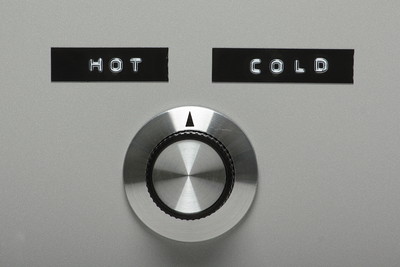 On your gaming travels, you’ve probably seen some casinos advertising games that are ‘hot’, i.e. that have been paying out consistently during a given timeframe, and those that are ‘cold’ – the polar opposite.
On your gaming travels, you’ve probably seen some casinos advertising games that are ‘hot’, i.e. that have been paying out consistently during a given timeframe, and those that are ‘cold’ – the polar opposite.
While there’s no suggestion of foul play in those definitions, online casino games are built using a random number generator – therefore, there is no such thing as a hot or cold slot or table game….just those on the right/wrong side of short-term variance.
It’s a concept that the UK’s marketing regulator, the Advertising Standards Agency (ASA), wants to eradicate, and according to reports they are set to ban casinos from suggesting that certain games are going through a hot or cold spell.
The ban is likely to come from the backdrop of a complaint against PlayOJO that the ASA has been investigating. The brand used a promotional message of ‘….switch between HOT or COLD to reveal the MOST and LEAST profitable games of the hour, updated every 5 minutes’ in order to induce players to try to cash in on a hot game, or to see if a cold title was about to improve its success rate.
The message denotes that players would think that they have some control over their destiny – this is the so-called ‘gambler’s fallacy’, and is something that the ASA is strictly against given that online casino games are completely random in their outcomes.
PlayOJO have since removed the feature from their website, but not before the ASA investigation was concluded – they have labelled the promotion as ‘irresponsible’ and ‘misleading’.
The subject of alleged hot and cold numbers in roulette was one of the reasons why fixed odds betting terminals (FOBTs) were cracked down upon in 2018, with a wave of regulatory reform seeing the maximum stake for such games decreased from £100 to £2.
What is the Gambler’s Fallacy?

There is a mindset in online casino gaming and sports betting where individuals think they have ‘cracked it’ – it’s more likely they have been fooled by randomness and the laws of small numbers. This is the Gambler’s Fallacy.
Online casino games are completely random – spin the reels of a slot machine and you may win or may you lose, with the outcome determined by the random number generator. Even if you win three spins in a row, this is not down to innate skill….it’s simply the variance of the game producing an unexpected, but not impossible, outcome.
In online roulette, for example, there isn’t anything hot about the number 23 coming up three times in 30 minutes, or 75% of the last 20 spins being red or black. You haven’t spotted a pattern that can be exploited – you have simply misinterpreted an apparent trend amidst the chaos.
Psychologists have gone to town on the gambler’s fallacy, and it’s something that players – and the casinos they play at – should not fall into the trap of.
When gambling firms suggest that players can utilise skill to win at their random games, they tend to get in a lot of trouble – that is the basis of the ASA’s investigation into PlayOJO.
The gambler’s fallacy, also known as the Monte Carlo fallacy, is best avoided by all parties – any illusion of control can be the downfall of casino gamers, whose priority should be fun and entertainment when hitting the slots or their favourite table games.
